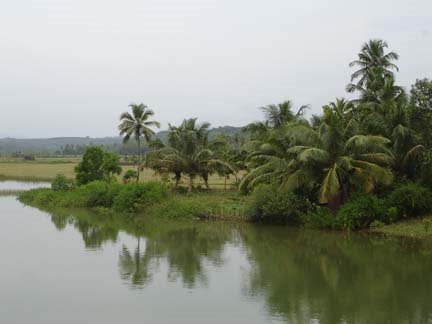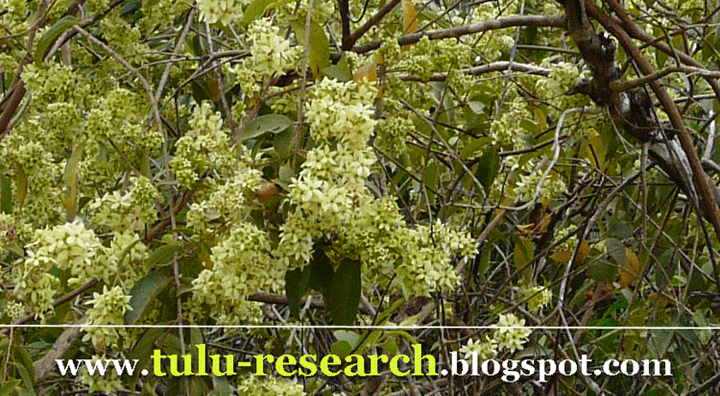An interesting aspect in the study of origin and
analysis of ancient historical terms and place names is that a word can have
more than one meaning. This could have happened as a result of existence of
similar sounding words derived from different tribal communities and time
periods. For example, Odi is an
ancient word with more than 17 meanings.
Some of these ancient words have the potential of
opening and leading our minds into the obscure paths of the nature and
evolution of words (and languages) in this land.
Garodi, the gymansium
The term ‘Garodi’ is generally considered to an
ancient Tulu word for ancient system of gymnasia that dotted many villages of
Tulunadu wherein young men were trained systematically in the martial arts.
Interestingly in Tamil the equivalent word for Garodi happens to be karati
because Tamil alphabet is devoid of consonants like Ga and Di. It has been
speculated that Buddhist monks from south India carried the karati art form of martial arts to China
and Japan where it was designated as karate.
Garodi, the Tulu word also means a large hall in
front of the house according to Tulu Nighantu. And this could be the actual origin of the
word since martial arts were taught to disciples in large open halls called
Garodi. The parallel term Kalari (kala+ri),
vogue in Tamil and Malayalam region also means an open area or plot (kaLa) for conducting exercises or games. Reference to bows, swords,
spears and shields can be found in Sangam literatures like Akananuru and
Purananuru. The word Kalari has
appeared in Sangam literature (Tamil)
like Puram and Akam to describe the war field or combat field. It can be seen that
the related word kalaha means battle
in languages like Kannada and Sanskrit.
Garodi, the snake charmer
However, the term Garodi is not exclusive to
Tulunadu. There are persons having Garodi or Garodiya as surname and tribes
known as Garodi in Western India. There are places known as Garodi or Garodiya
in Gujarat and Maharastra.
The Garodis are a wandering tribe of snake charmers
and jugglers in parts of northern Karnataka and Maharastra (Belgaum, Kolhapur,
Sangli , Pune and Miraj). These have been considered to be a Muslim sect converted
from Scheduled Castes.
Etymology
1. Garodi1= A large open
hall, gymnasium. Gara= large. Garandal=
large tall, person; stalwart. Garda=
(flag on) tall post, [misnomer: Garuda
kamba; It should be Garda kamba].
Garābu= greed; Garime= severity, magnitude. Gar
(as in garpu) to dig soil or land to
level etc.
2. Garodi 2= Snake charmer.
Gara= snake, Garala
(Tulu etc)=snake poison. Garuda=
snake charmer/catcher bird; Eagle, Gar=snake; Odi=charm, magic trick.
Gārudi= magic tricks; snake catchers tricks? ; Shri Krishna Garudi= Magical acts of
Lord Krishna.
®
.



No comments:
Post a Comment